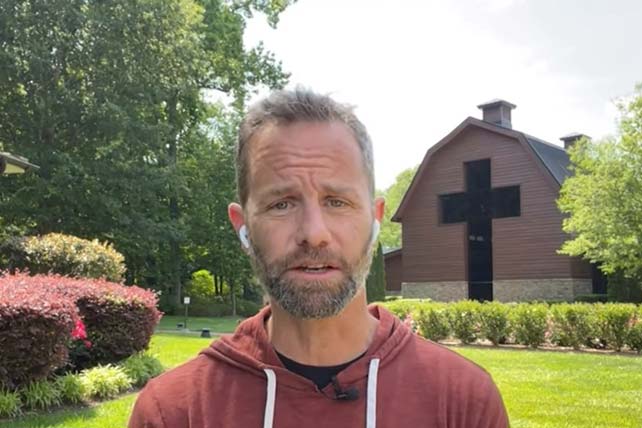Russell Moore, editor-in-chief and the director of the Public Theology Project at Christianity Today and former president of the Ethics & Religious Liberty Commission of the Southern Baptist Convention (SBC), came out swinging against former President Donald Trump in a Mother’s Day interview on MSNBC with Chuck Todd.
This isn’t the first time Moore has publicly opposed Trump over his lack of character. The prominent evangelical conservative did not support the former president in the 2016 or 2020 elections. In 2016, Trump slammed Moore, calling him “truly a terrible representative of evangelicals and all of the good they stand for. A nasty guy with no heart!”
In the MSNBC interview, Moore stated emphatically that he has no plans to support Trump in 2024. He sat down with Todd on “Meet the Press” on Sunday, May 14, to discuss Trump being found liable for sexual abuse and defamation in the civil case E. Jean Carroll brought against him.
Trump was ordered to pay $5 million in damages on May 9 and has appealed the verdict. Moore lamented the current condition of the United States, “where a former president of the United States is found liable for sexual abuse and sexual assault and defamation of a woman who survived such abuse and assault. And the country just yawns for the most part. That tells me that something has gone terribly awry in this country.”
Russell Moore Calls Out Trump and His Lack of Character
One of Trump’s most supportive demographics is evangelicals. Moore said it’s surprising to him—and to a growing number of conservatives—that Trump’s character isn’t brought into question and fully addressed.
Recently, Trump was indicted for falsifying business records and concealing damaging information. Just last week, following the judgment against Trump in the Carroll case, he attacked Carroll, mocking her and calling her a “whack job” in a CNN town hall event. The audience laughed and applauded. Controversial public figures, including Marjorie Taylor Greene, have defended the former president.
“Think about the teenage girl in a church somewhere who’s being abused by her youth pastor, wondering whether to come forward,” said Moore. “[W]hen the victim is ridiculed by a presidential candidate in front of a crowd, the response is laughter. That has devastating implications.”
Moore further discussed the difference between Trump’s actions and what many—especially evangelical Christians—hold dear.
“And right now, among candidates, among elected officials, sometimes even among church officials, there’s fear,” said Moore. “No one wants to speak to this because they’re afraid of what will happen to them. The stakes are too high.”
But Moore didn’t back down from questioning and rebuking the character of the former president. He said, “Well, I think someone needs to step forward and talk about the importance of character and talk about the importance of having someone who can be trusted to have the nuclear codes.”



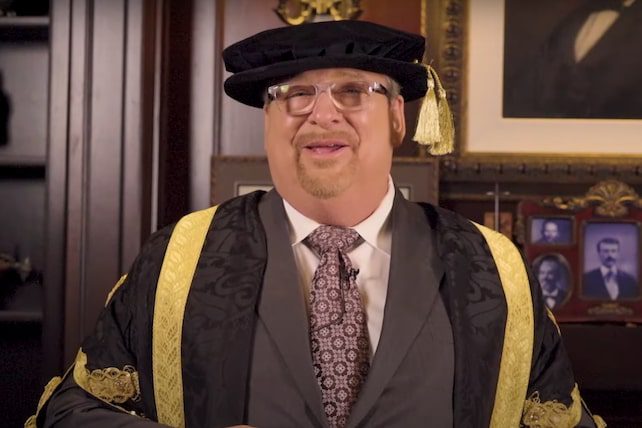
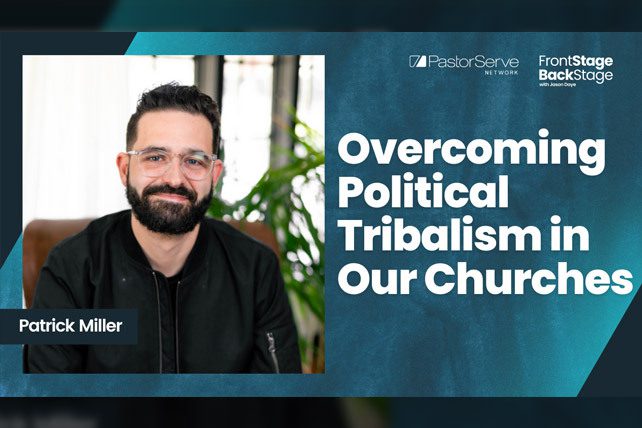
 How can we help lead and shepherd our local churches to overcome political tribalism? In this week’s conversation on FrontStage BackStage, host Jason Daye is joined by Patrick Miller. Patrick is a pastor at The Crossing in Columbia, Missouri. He’s also the co-host of the Truth Over Tribe podcast and the co-author of the award-winning book, “Truth Over Tribe.” Together, Patrick and Jason look at some of the challenges that pastors face when it comes to political divisiveness in their communities and even in their congregations. They look at the difference between the politics of Jesus and the political partisanship that we see so often in our culture. Then Patrick shares some practical steps and even some incredible stories of hope for seeing people overcome the divisiveness and embrace a kingdom-focused and Christ-centered way of living.
How can we help lead and shepherd our local churches to overcome political tribalism? In this week’s conversation on FrontStage BackStage, host Jason Daye is joined by Patrick Miller. Patrick is a pastor at The Crossing in Columbia, Missouri. He’s also the co-host of the Truth Over Tribe podcast and the co-author of the award-winning book, “Truth Over Tribe.” Together, Patrick and Jason look at some of the challenges that pastors face when it comes to political divisiveness in their communities and even in their congregations. They look at the difference between the politics of Jesus and the political partisanship that we see so often in our culture. Then Patrick shares some practical steps and even some incredible stories of hope for seeing people overcome the divisiveness and embrace a kingdom-focused and Christ-centered way of living.


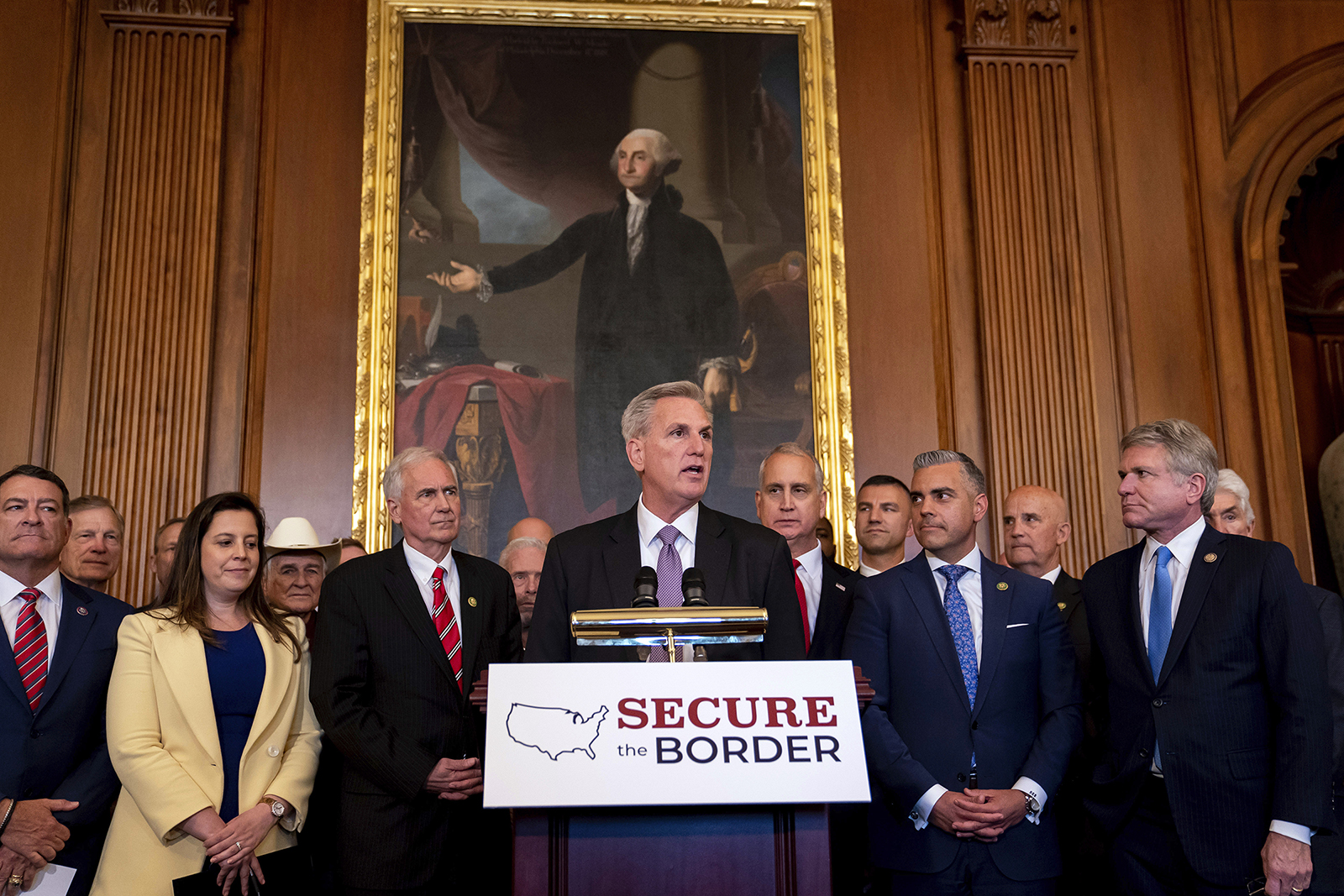
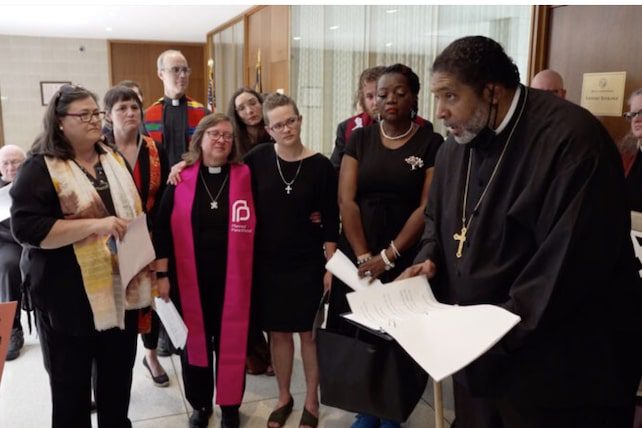







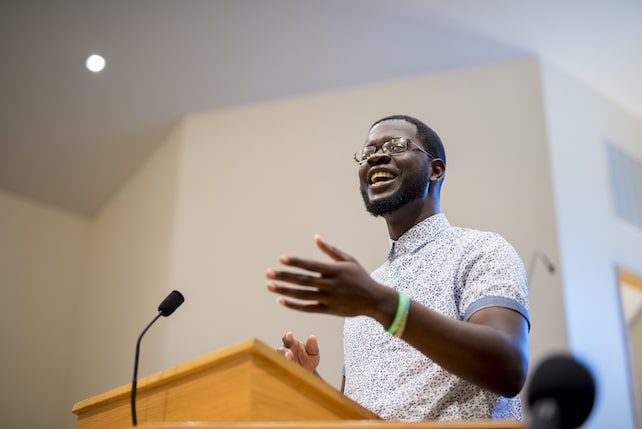
 On Nov. 4, 1979, CBS correspondent Roger Mudd asked Senator Ted Kennedy this question during a prime-time interview: “Why do you want to be president?” Historians and political pundits who have reflected upon the Kennedy presidential campaign attribute Kennedy’s hesitant and fumbling response to this simple question as the main reason why he was not elected to become president of the United States.
On Nov. 4, 1979, CBS correspondent Roger Mudd asked Senator Ted Kennedy this question during a prime-time interview: “Why do you want to be president?” Historians and political pundits who have reflected upon the Kennedy presidential campaign attribute Kennedy’s hesitant and fumbling response to this simple question as the main reason why he was not elected to become president of the United States.![Beth Moore Can't 'Fathom That These Are Our Choice [of] Leaders,' Calls America 'Virtually Amoral' beth moore](https://cdn.churchleaders.com/wp-content/uploads/2023/05/president_podium.jpg)
